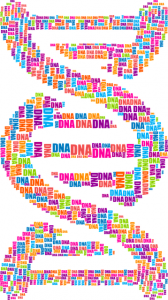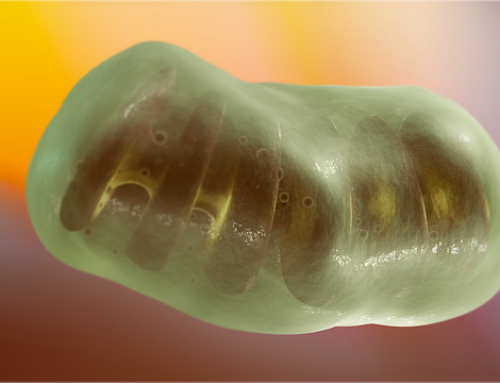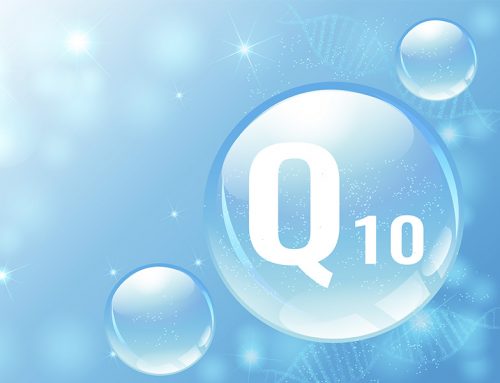
Basically, our efforts to avoid or delay the onset of the various pathologies associated with increasing age involve managing the effects of cellular bio-energetic disturbances, oxidative stress, and mitochondrial dysfunction. Combined supplementation with Coenzyme Q10 and NADH may be a beneficial anti-ageing treatment.
Most recently, nicotinamide adenine dinucleotide (NAD+ in its oxidized form and NADH in its reduced form) has been getting much attention as a possible anti-ageing substance.
- Like Coenzyme Q10, NAD+/NADH is a coenzyme that is present in nearly all human cells.
- Like Coenzyme Q10, NAD+/NADH exists in both an oxidized form and a reduced form.
- Like Coenzyme Q10, NAD+/NADH is needed for the cellular process of producing ATP energy from the food that we eat.
- Like Coenzyme Q10, NAD+/NADH has an antioxidant function in the cells protecting against the damage caused by oxidative stress.
- Like Coenzyme Q10, NAD+/NADH is essential for life. Without NAD+/NADH, the cells will not produce energy and will die.
- Like Coenzyme Q10, NAD+/NADH levels decrease as we get older.
Coenzyme Q10 and NAD+/NADH and Chronic Fatigue Syndrome
The results of a 2015 Spanish study indicate that Coenzyme Q10 and NADH supplementation could be a beneficial treatment of chronic fatigue syndrome and other chronic fatiguing illnesses for three reasons [Castro-Marrero]:
- Coenzyme Q10 and NADH are essential co-factors in the process of cellular bio-energetics; they can boost mitochondrial function.
- Coenzyme Q10 and NADH are powerful free radical scavengers that mitigate lipid peroxidation and DNA damage caused by oxidative stress.
- Coenzyme Q10 and NADH supplementation can reduce the extent of oxidative damage and mitochondrial dysfunction associated with chronic fatigue syndrome.
In sum, oral CoQ10 plus NADH supplementation seems to be a safe and effective therapy to reduce fatigue, restore mitochondrial function and bio-energetic metabolism, and ameliorate oxidative damage in chronic fatigue syndrome [Castro-Marrero].
CoQ10/NADH and Chronic Fatigue Syndrome Study Design
Researchers at the Vall d’Hebron University Hospital in Barcelona, Spain, enrolled 73 women diagnosed with chronic fatigue syndrome in a randomized controlled study. They assigned 39 women to take oral Coenzyme Q10 (200 mg/day) plus NADH (20 mg/day) supplementation and 34 women to take matching placebos. A Barcelona company, Vitae Natural Nutrition, S.L., supplied the NADH capsules [Castro-Marrero].
The supplements and placebos were administered in two daily doses for 8 weeks [Castro-Marrero].
CoQ10/NADH and Chronic Fatigue Syndrome Study Results
The analysis of the data from the study showed the following outcomes of the combined CoQ10 and NADH supplementation compared with placebo [Castro-Marrero]:
- Significantly reduced fatigue impact scale total scores
- No adverse effects reported by patients
- Significantly lower levels of NAD+ compared with placebo, significantly higher levels of NADH, and significantly lower NAD+/NADH ratio
- Significantly increased blood CoQ10 levels
- Significantly higher levels of ATP production
- Significantly lower levels of lipid peroxidation
CoQ10/NADH and Chronic Fatigue Syndrome Study Conclusions
The researchers concluded that the changes in NAD+/NADH content, CoQ10 levels, lipid peroxidation, and intracellular ATP production indicate that cellular bio-energetic disturbances, oxidative stress, and mitochondrial dysfunction may be common events in chronic fatigue syndrome. If so, then CoQ10 plus NADH supplementation could be used as an alternative and/or complementary therapy for chronic fatigue syndrome [Castro-Marrero].
Bottom line: Coenzyme Q10 and NADH
We should not imagine that there is a single drug or supplement combination that by itself can reverse ageing and keep us vigorous well into our senior years. Diet and exercise and stress management and lifestyle (e.g. alcohol and cigarette smoking and sugar consumption) remain basic factors.
However, the effects of CoQ10 and NADH supplementation on measures of fatigue in chronic fatigue syndrome patients are encouraging and thought-provoking.
The mechanism by which NAD+/NADH may protect our cells from age-related decline is thought to be in the effect of NAD+/NADH on the biological activity of sirtuin proteins. The sirtuin proteins regulate cellular homeostasis, help to keep telomeres from getting too short, and protect against oxidative stress. The sirtuins can function only with adequate NAD+ availability, and NAD+ availability declines with increasing age [Imai & Guarente].
Sources
Castro-Marrero J, Cordero MD, Segundo MJ, Sáez-Francàs N, Calvo N, Román-Malo L, Aliste L, Fernández de Sevilla T & Alegre J. (2015). Does oral Coenzyme Q10 plus NADH supplementation improve fatigue and biochemical parameters in Chronic Fatigue Syndrome? Antioxid Redox Signal; 22(8): 679–685.
Imai, S. & Guarente, L. (2016). It takes two to tango: NAD+ and sirtuins in aging/longevity control. npj Aging Mech Dis 2, 16017; doi:10.1038/npjamd.2016.17.
The information presented in this review article is not intended as medical advice and should not be used as such.
4 March 2020









Leave A Comment